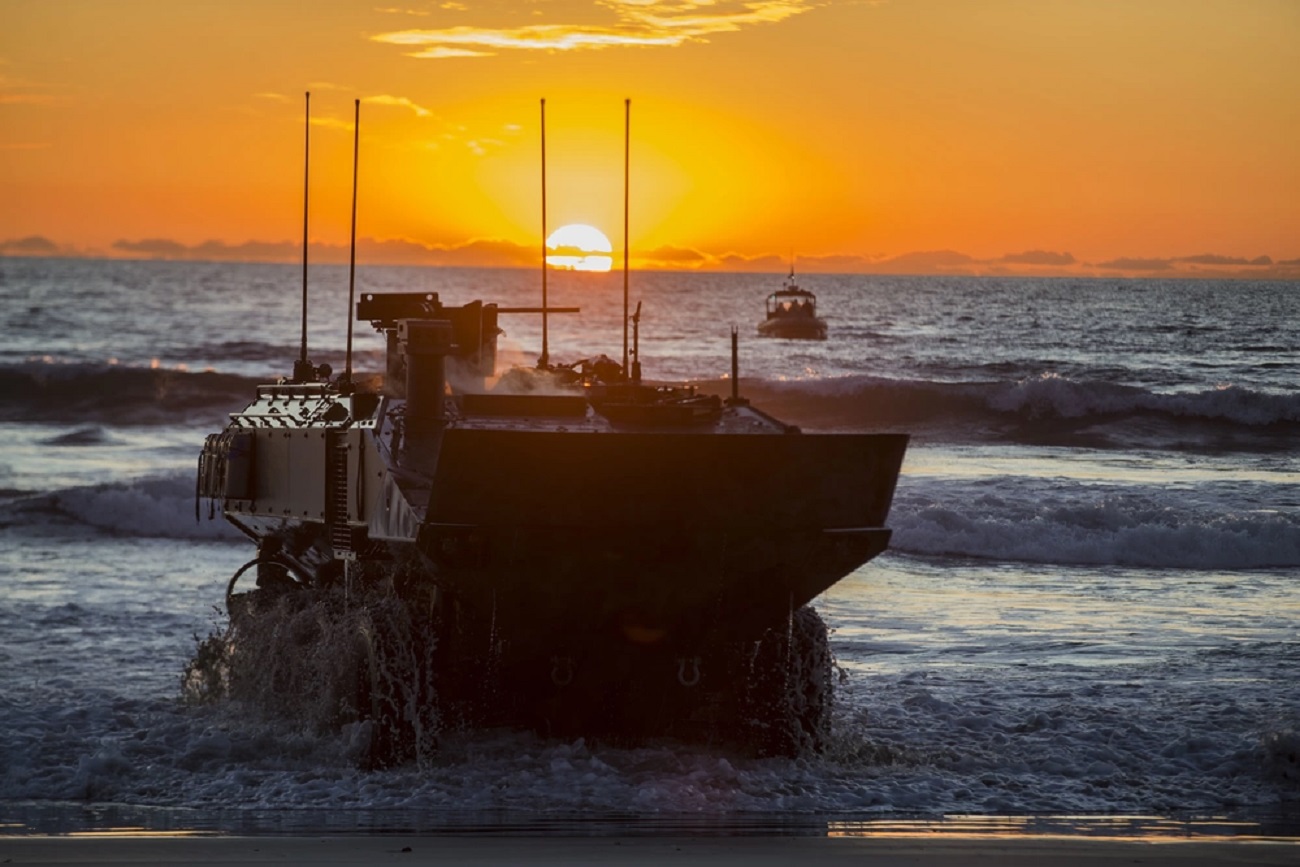The Amphibious Combat Vehicles (ACV) 8×8 platform provides true open-ocean amphibious capability, land mobility, survivability, payload, and growth potential to accommodate the ever-evolving operational needs of the Marine Corps. BAE Systems has been awarded a $211 million firm-fixed-price modification to a previously awarded contract by the U.S. Marine Corps for more Amphibious Combat Vehicles (ACVs) under the Marine Corps’ fourth order for full-rate production (FRP). In addition to vehicle production, the award covers procurement of 40 FRP ACV Personnel (ACV-P) variants, fielding and support costs, and support and test equipment. The ACV 8×8 platform provides true open-ocean amphibious capability, land mobility, survivability, payload, and growth potential to accommodate the ever-evolving operational needs of the Marine Corps.
“With this contract and alongside our strategic partner, Iveco Defence Vehicles, we are able to continue to offer the Marine Corps predictability, stability, and continuity with production and the supply chain to deliver ACVs on time and on budget. With more than 200 ACVs delivered to date, this program, which began full-rate production in December 2020, has matured to deliver this critical capability so that Marines can fulfill their missions around the world,” said Garrett Lacaillade, vice president of amphibious vehicles for BAE Systems.

The Amphibious Combat Vehicle (ACV) is a program initiated by Marine Corps Systems Command to procure an amphibious assault vehicle for the United States Marine Corps to supplement and ultimately replace the aging Assault Amphibious Vehicle (AAV). The program replaces the Expeditionary Fighting Vehicle (EFV) program canceled in 2011. Originally a plan to develop a high-water-speed vehicle, the program has expanded into a multi-phased approach to procure and develop several types of amphibious-capable vehicles to address near and long-term requirements. The competition for the final project ended in 2018 which saw the birth of an eight-wheel drive armoured fighting vehicle based on the Italian Iveco SuperAV produced by BAE Systems and Iveco starting in 2020 with 36 units and from 2021 with 80 vehicles per year for five years.
The Amphibious Combat Vehicles Personnel (ACV-P) is the first of a family of four variants to be manufactured and delivered to the Marine Corps. Additional variants include the ACV Command and Control (ACV-C) variant which is currently in production; the ACV 30mm Cannon (ACV-30) variant which BAE Systems is currently under contract to produce multiple production representative vehicles; and the ACV Recovery (ACV-R) variant which is currently in design and development. ACV production and support is taking place at BAE Systems locations in Stafford, Virginia; San Jose, California; Sterling Heights, Michigan; Aiken, South Carolina; and, York, Pennsylvania. Deliveries are anticipated to begin in April 2025.
















